Fair expected to expand links along maritime Silk Road
Updated: 2014-10-27 07:58
By Zheng Caixiong(China Daily USA)
|
||||||||
Organizers from the 21st Century Maritime Silk Road International Fair are pinning much hope on the upcoming event to be able to play a big part in further expanding economic cooperation between the southern province and nations and regions along the Maritime Silk Road.
According to Liu Xiaojie, deputy director of the organizing committee of the fair, the event will offer a good platform and a golden opportunity for Guangdong to enhance Sino-foreign economic ties and strategic cooperation with the nations and regions along the ancient maritime trade route.
Insiders have forecast the total trade volume of agreements reached during the fair will surpass 100 billion yuan ($16. 34 billion).
"Guangdong province, which has become one of the country's economic powerhouses, should further diversify its world markets, instead of relying too much on the markets of developed countries and regions, and the province has a long history of foreign trade with the nations and regions along the ancient Maritime Silk Road," Liu said.
Liu said agreements on a number of trade, tourism and culture projects are expected during the fair to help promote economic cooperation and cultural links between Guangdong and the nations along the Maritime Silk Road.
Wu Jun, secretary-general of the organizing committee, said Guangdong has the historic, geographic, trading and cultural advantages to organize the first International Fair of the 21st Century Maritime Silk Road.
"Guangdong, which was an important starting point for the ancient maritime trade route, is the right place to organize such an international fair," Wu said.
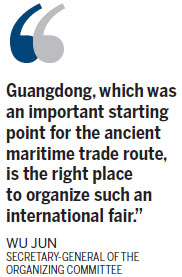
"The countries and regions along the Maritime Silk Road, particularly the Association of Southeast Asian Nations, are usually prime destinations for Guangdong products."
The province, which borders the Hong Kong and Macao special administrative regions, has established very close economic and trade ties with the nations and regions along the ancient trade route since ancient dynasties, as Guangzhou, the provincial capital used to be the only trade port open to the outside world in those days, Wu said.
The province has also been an important window of China's reform and opening drive and an economic engine for the past three decades.
Guangdong, which has the country's longest coastline, has also established many international sea routes with the rest of the world, Wu said.
The province now has five registered 100-million-ton deep-water ports. The cargo handling capacity of Yantian Port in the Shenzhen special economic zone reached 11.8 million TEUs (twenty-foot equivalent units) in 2013, the highest on the mainland and fourth highest in the world.
"Last year, the cargo handling capacity of Guangdong ports hit 1.5 billion tons," Wu said.
China has exported more than $1 trillion worth of products via agreements made during the China Import and Export Fair since the biggest trade event was first held in Guangzhou in 1957.
Guangdong has been the country's largest foreign trader for decades and the province's annual foreign trade volume represents more than one-fourth of the country's total, Wu said.
"Guangdong annually sells a large number of electronic products, home appliances, gifts and ornaments, garments, shoes, caps, food and beverages to ASEAN, while the southern province imports plenty of raw materials, rubber, fruits and other agricultural products from ASEAN," Wu said.
The coastal Guangdong province, known for its brisk business industry since ancient times, has been a trade hub for centuries.
Zhang Ke, deputy mayor of Dongguan, said his city government would spare no effort to expand economic ties and cultural links with the nations and regions along the Maritime Silk Road in the coming years.
"Dongguan will further upgrade its cooperation with the nations and regions along the Maritime Silk Road, as such cooperation benefits both sides," Zhang told a group of journalists from those nations and regions early this year.
He urged the companies in his city to grasp the golden opportunity to expand cooperation with their counterparts along the Maritime Silk Road during the International Fair of the 21st Century Maritime Silk Road.
Located at the mouth of the Pearl River, Dongguan, home to a myriad of foreign-funded companies and joint ventures, therefore became the host city of the fair, which aims to help promote Sino-foreign cooperation and cultural links.
zhengcaixiong@chinadaily.com.cn
|
State-of-the-art robots made by the Lung Cheong Group, a local Dongguan firm. The upcoming 21st Century Maritime Silk Road International Fair will showcase such leading high-tech products. |
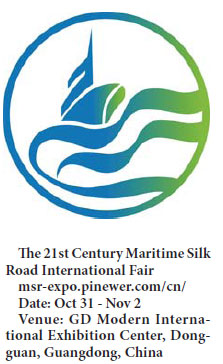
(China Daily USA 10/27/2014 page12)
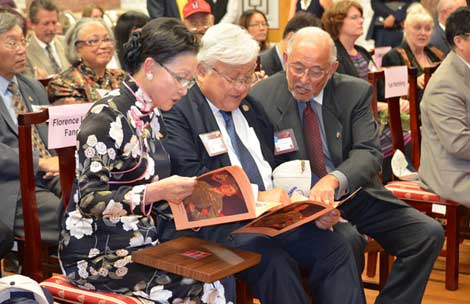
 WWII's Flying Tiger veterans saluted
WWII's Flying Tiger veterans saluted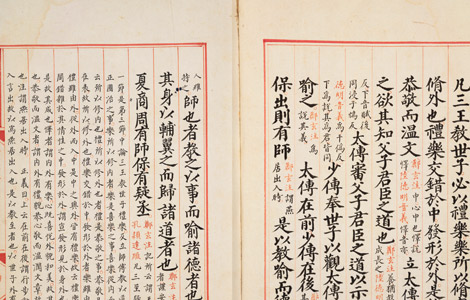
 600-year-old Chinese book found in California
600-year-old Chinese book found in California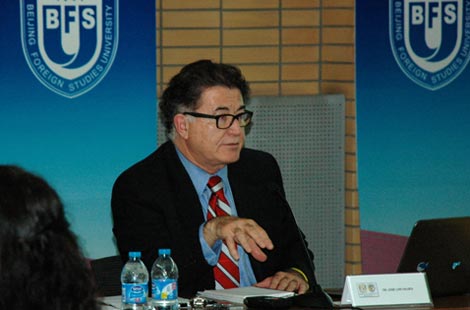
 China's growing role in Mexico not a threat to US: expert
China's growing role in Mexico not a threat to US: expert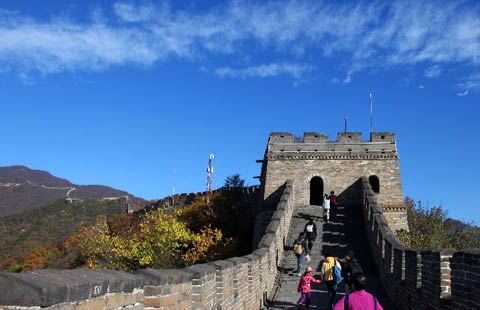
 Beijingers see blue sky again after smoggy days
Beijingers see blue sky again after smoggy days
 9th Rome Film Festival kicks off
9th Rome Film Festival kicks off
 Highlights of China Fashion Week
Highlights of China Fashion Week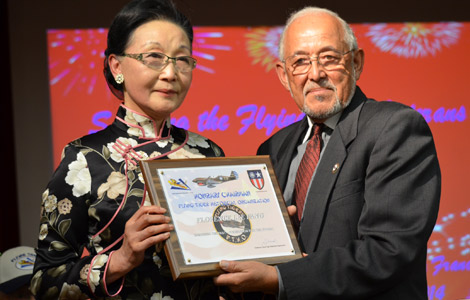
 Remembrance of Flying Tigers & WWII Veterans
Remembrance of Flying Tigers & WWII Veterans
 Lang Lang plays at the UN Day concert
Lang Lang plays at the UN Day concert
Most Viewed
Editor's Picks

|

|

|

|

|

|
Today's Top News
China's growing role in Mexico not a threat to US: expert
Redesigned SAT test 'won't brainwash'
600-year-old Chinese book found in California
Asia, LatAm to lead air travel by 2034
Improving air quality as 'priority'
The road goes on for teacher Levine
Police step up efforts against smugglers
Stricter border check for terrorists
US Weekly

|

|









